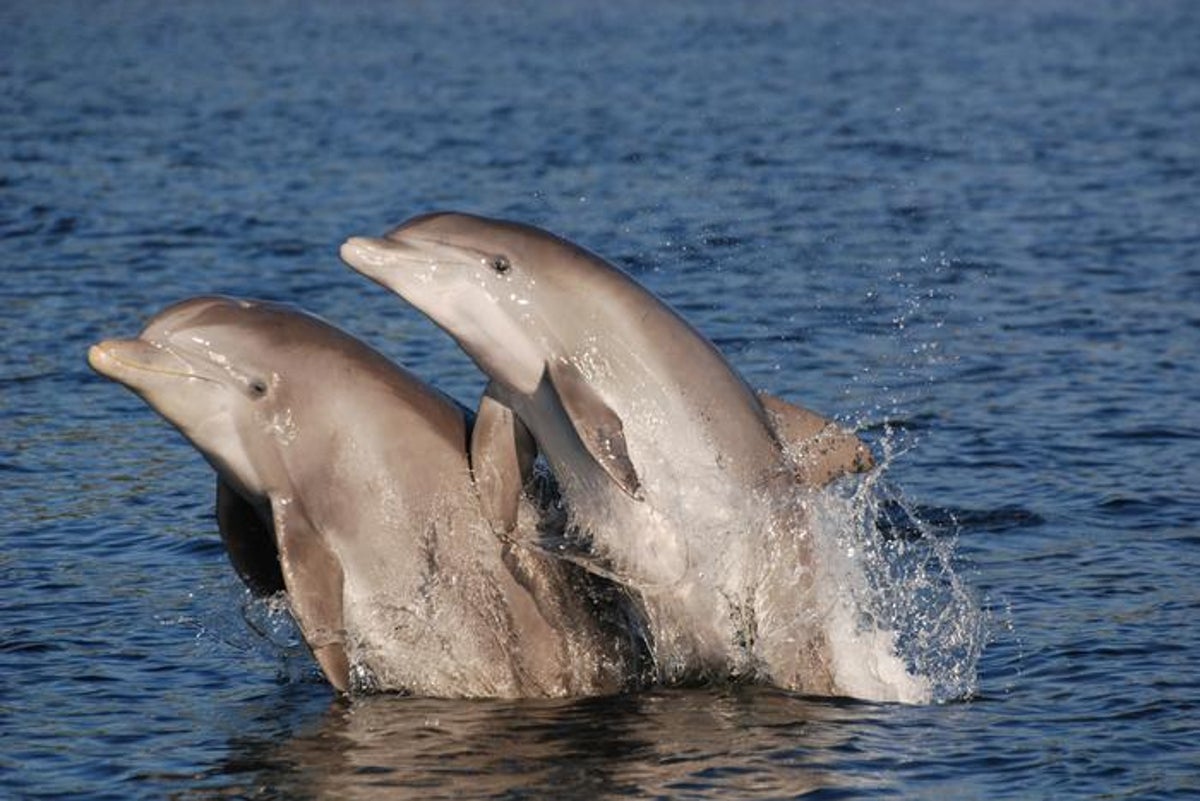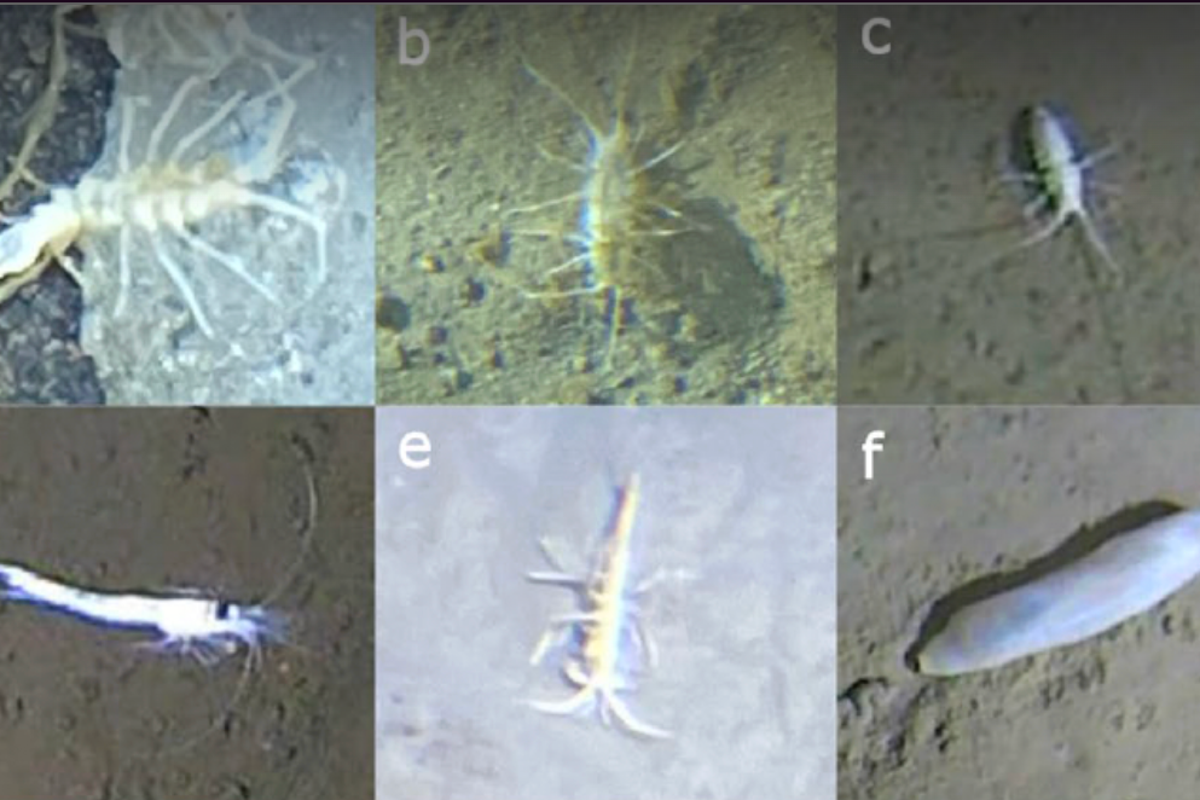Dolphins Are Dying from Alzheimer’s-Like Disease Due to Human Negligence: A Dire Wake-Up Call for Our Environmental Ethics and Responsibility to Nature’s Innocent Creatures, Echoing a Broader Crisis of Accountability in Society
Bottlenose dolphins, renowned for their intelligence and social behavior, have seen an alarming rise in death rates, particularly during the summer months when harmful algal blooms proliferate. This troubling phenomenon, often linked to human activity, has led scientists to draw unsettling parallels between these marine mammals’ declining health and conditions resembling Alzheimer’s disease in humans. As anthropogenic factors contribute increasingly to the degradation of marine ecosystems, the ethical implications of our environmental impact come sharply into focus.
Algal blooms are a well-documented environmental crisis, often triggered by nutrient pollution from agricultural runoff, sewage disposal, and industrial waste. These blooms can be toxic, releasing harmful substances that not only affect marine life but also disrupt entire ecosystems. For dolphins, exposure to these toxins can lead to neurological damage, immune system suppression, and, in severe cases, increased mortality. Researchers have observed that during periods of algal blooms, dolphins exhibit symptoms consistent with neurodegenerative diseases, raising alarms about the broader implications of marine pollution on animal health.
The connection between environmental degradation and health issues in dolphins serves as a microcosm of a larger debate regarding humanity’s relationship with nature. Just as ongoing discussions about climate change and pollution highlight our moral obligations to the planet, the plight of dolphins forces us to confront uncomfortable truths about our stewardship of the environment. These creatures, often viewed as charismatic symbols of ocean life, are now emblematic of the profound consequences of human negligence.
Dolphins, with their complex social structures and high intelligence, play a crucial role in marine ecosystems. They are often seen as indicators of ocean health; thus, their decline serves as an alarming signal about the deteriorating conditions of our seas. As these intelligent mammals struggle against the effects of toxins, their suffering reflects a broader environmental crisis that demands urgent attention. The increasing prevalence of algal blooms correlates closely with intensifying agricultural practices and shifting weather patterns, making it clear that human activity is at the center of this issue.
The ethical implications of this situation extend beyond the immediate health concerns of dolphins. The discussions surrounding their plight resonate with broader social themes, such as the responsibility of industries contributing to pollution and the ethical obligations we hold toward other sentient beings. Just as society grapples with questions about systemic injustices and accountability, the fate of dolphins compels us to consider our collective role in creating sustainable environments.
As we reflect on the impact of human actions on marine life, it is essential to recognize the interconnectedness of all species, including our own. The health of dolphins is intrinsically linked to the health of the oceans, which in turn affects human communities reliant on these ecosystems for food, recreation, and economic stability. The alarming trend of increasing dolphin mortality rates should serve as a wake-up call to policymakers, industries, and consumers alike, prompting a critical examination of our environmental practices.
Moreover, the issue of dolphin health and algal blooms is not a singular phenomenon; it is symptomatic of a larger trend affecting numerous species across various ecosystems. From terrestrial wildlife to aquatic life, the consequences of pollution and habitat destruction are becoming increasingly visible. The failure to address these challenges adequately may result not only in the loss of individual species but also in the destabilization of entire ecosystems.
Scientists and conservationists are calling for immediate and concerted action to mitigate the effects of algal blooms and protect vulnerable species like dolphins. Strategies may include stricter regulations on nutrient runoff, public awareness campaigns about the importance of preserving marine ecosystems, and investments in research to better understand the complex interactions between pollutants and marine life. Engaging local communities in conservation efforts will be crucial in fostering a sense of stewardship and accountability toward the environment.
The plight of dolphins, particularly in light of the alarming rise in diseases resembling Alzheimer’s, is a stark reminder of the delicate balance within our ecosystems. As we navigate a world increasingly defined by environmental challenges, it is imperative that we recognize our role in shaping the future of both wildlife and human society. The intersection of health, ethics, and environmental stewardship demands our urgent attention and action, lest we witness further tragedies unfold in both the ocean and beyond.
As research continues to uncover the link between human activity and the health of marine mammals, it is vital to engage in dialogue about the moral imperatives that underpin our environmental practices. The echoes of dolphin distress should serve to unify rather than divide, urging collective action toward a more sustainable and equitable future for all Earth’s inhabitants. The narrative surrounding dolphins and their Alzheimer’s-like disease is a clarion call for reflection on our environmental ethics, one that transcends species and speaks to the core of humanity’s relationship with the natural world.
Bottlenose dolphins found to have increased death rates during summer when algal blooms are common




